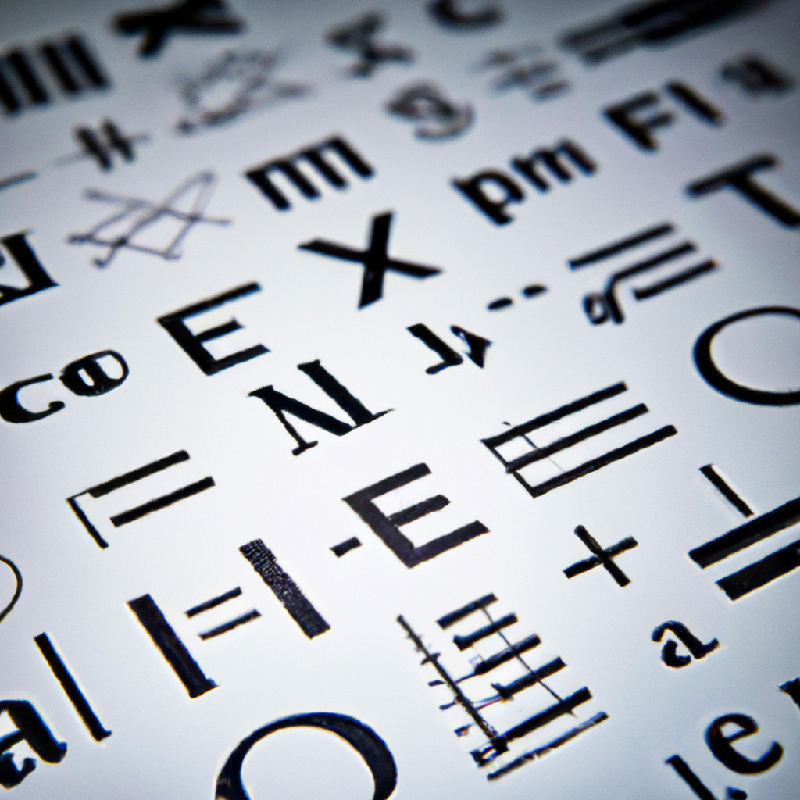
Mathematics, often referred to as the language of the universe, is a subject that has both intrigued and intimidated students for centuries. From the elegance of simple arithmetic to the complexity of advanced calculus, mathematics plays a crucial role in our daily lives whether we realise it or not.
The Beauty of Numbers
At its core, mathematics is the study of numbers and patterns. Numbers govern the world around us, from the equations that describe the motion of celestial bodies to the geometry that shapes our buildings and cities. The beauty of mathematics lies in its ability to reveal the underlying order and structure of the universe.
Mathematics is foundational to civilisation because it provides the language and framework through which we can understand and manipulate the world around us. Its importance spans multiple aspects of human life, from the practical to the philosophical.
The Practicality of Mathematics
But mathematics is not just an abstract concept confined to textbooks and chalkboards. It is a practical tool that we use every day, often without even realising it. From calculating the tip at a restaurant to measuring ingredients for a recipe, basic arithmetic is an essential skill in our daily lives.
1. Technological Advancement
Mathematics is the backbone of modern technology. All fields of engineering, computing, and electronics rely on mathematical principles, whether it's the design of circuits, algorithms for software, or the principles of mechanics and physics that underpin all modern machinery. Without mathematics, advances in fields like artificial intelligence, telecommunications, space exploration, and medicine would be impossible.
2. Economic Systems and Finance
Mathematics is crucial for understanding and managing economies. Economics relies heavily on mathematical models to forecast trends, calculate risks, allocate resources, and optimise production. Banking, investment, and insurance industries all rely on complex tools such as calculus, statistics, and probability to make informed decisions and mitigate financial risks.
3. Science and Discovery
Maths is the language of science. It allows scientists to model natural phenomena, from the motion of planets to the behaviour of subatomic particles. Without mathematics, breakthroughs in physics, chemistry, biology, and medicine would not be possible. Concepts such as relativity, quantum mechanics, genetics, and epidemiology are all expressed and understood through mathematics.
4. Infrastructure and Engineering
From bridges to skyscrapers to transportation networks, mathematics is essential in designing and constructing the infrastructure of civilisation. Engineers use maths to calculate the forces acting on structures, optimise energy consumption, and design systems that are safe, efficient, and cost-effective. Civil engineering, electrical engineering, and mechanical engineering all depend on advanced mathematical concepts.
5. Communication and Information
The modern world runs on communication systems that are underpinned by mathematics. From the basic principles of coding theory (for encrypting and transmitting data securely) to the algorithms that govern internet search engines, math enables the flow of information across the globe. It is also key to data analysis, machine learning, and artificial intelligence—fields that are transforming every aspect of modern life.
6. Problem Solving and Critical Thinking
Mathematics fosters problem-solving skills. Learning how to approach mathematical problems teaches logical thinking, pattern recognition, and the ability to break complex tasks into manageable parts. These skills are applicable in nearly every field, from scientific research to business management and even everyday life. Mathematics develops analytical thinking, which is critical for making decisions and solving real-world problems.
7. Cultural and Philosophical Value
Mathematics has played an important role in the intellectual and cultural history of humanity. It has provided a way of understanding the world in a precise, systematic way. Ancient civilisations, from the Egyptians and Babylonians to the Greeks and Indians, used maths for astronomy, architecture, and trade. The pursuit of mathematical knowledge has also raised profound philosophical questions about the nature of reality, the infinite, and the limits of human understanding.
8. Precision and Innovation
Mathematics allows for precision in measurement, which is critical for everything from cooking to construction to space travel. For example, the precise measurements of time, distance, and mass are essential for GPS systems to work correctly, or for the successful launch and landing of spacecraft. Innovation often stems from the application of mathematical principles in novel ways, leading to breakthroughs that push the boundaries of what is possible.
9. Global Cooperation and Shared Knowledge
The universality of mathematics allows for global cooperation in science and technology. Since math is the same everywhere, it enables different cultures and nations to collaborate across borders, share discoveries, and build upon each other’s knowledge. This international language of mathematics fosters progress and innovation on a global scale.
10. Foundation for Future Generations
Mathematics lays the groundwork for future generations to further develop, expand, and refine human knowledge. It equips young people with the tools they need to engage with the rapidly changing world and to adapt to new technological and scientific challenges. A strong understanding of math is also a key to economic mobility and social progress.
License this feature
The body of this feature has been restricted...
